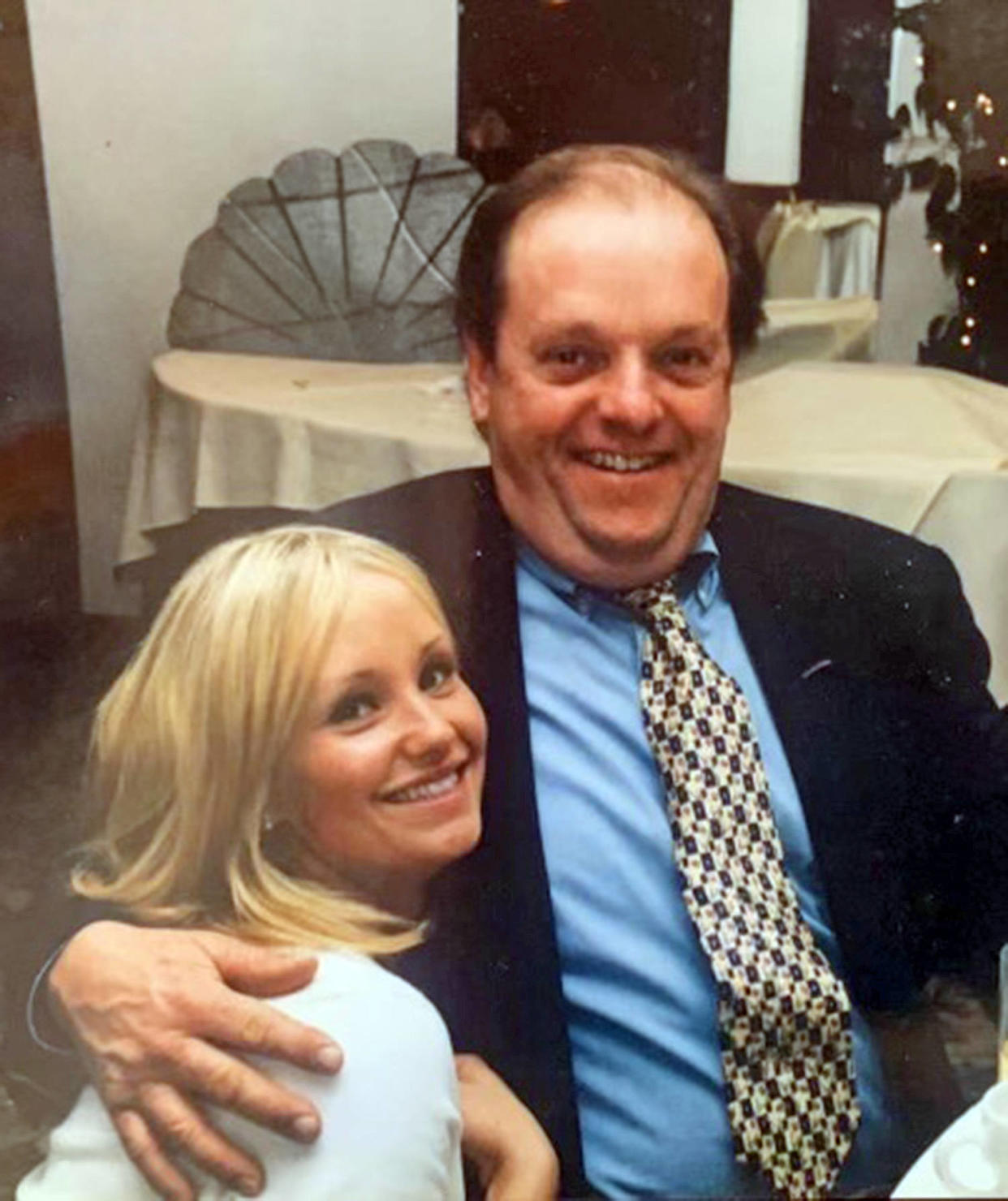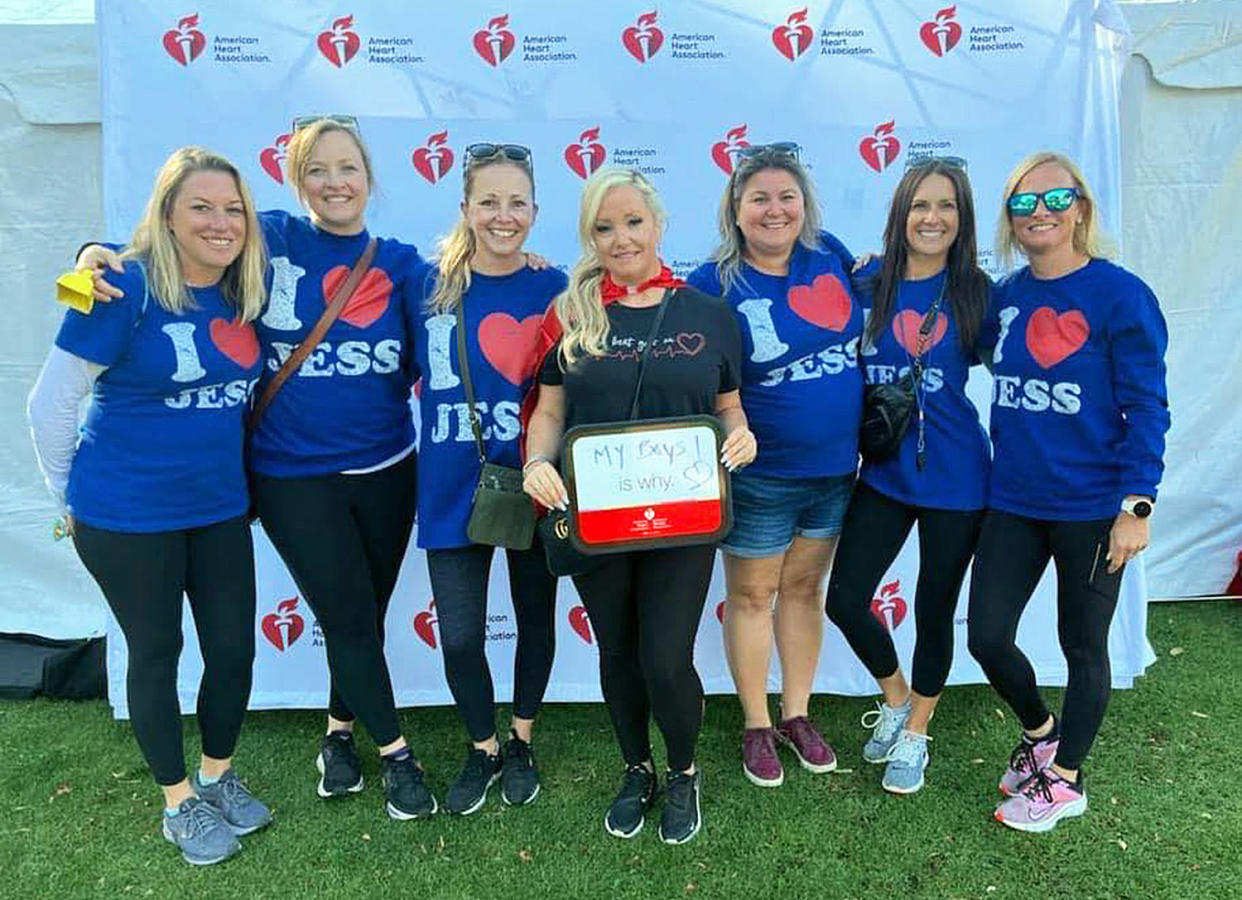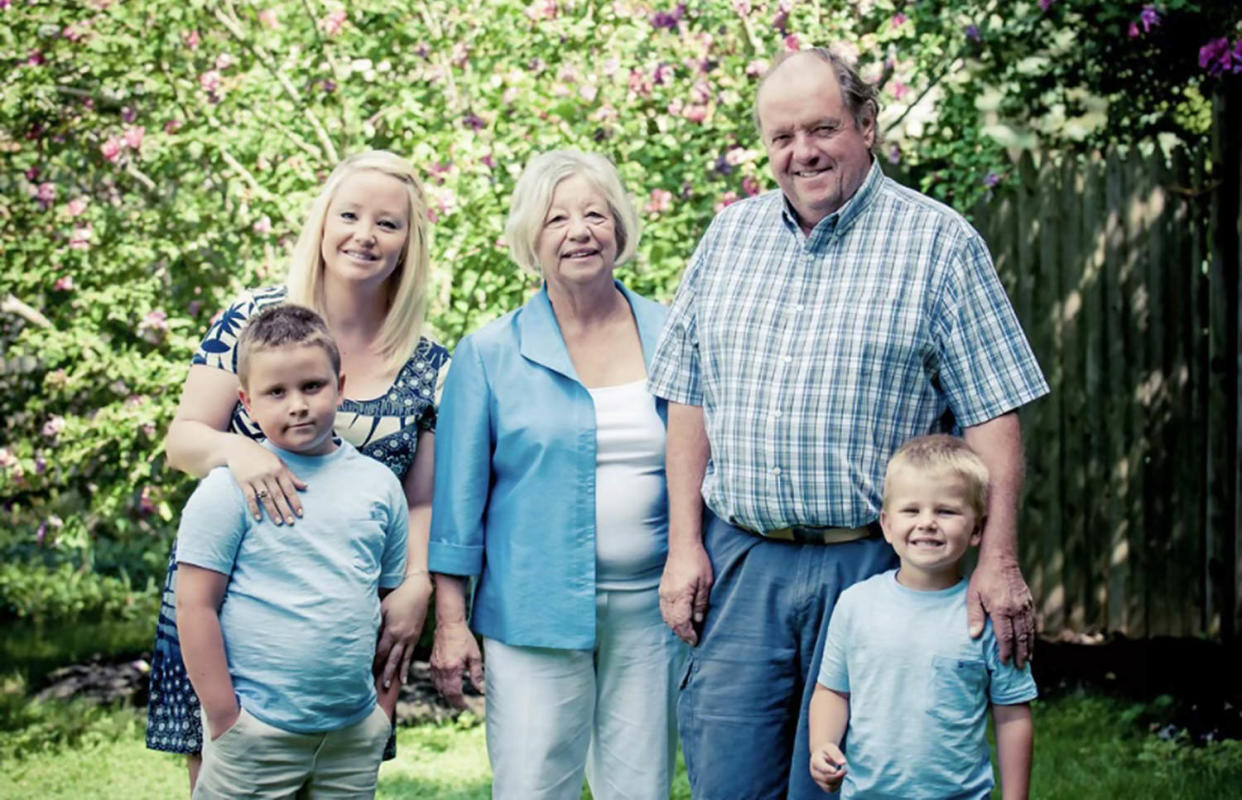'Absolutely shocked': Mom, 40, says severe chills were sign of widowmaker heart attack
In July 2020, Jessica Charron, then 40, started feeling what she thought were chills and tingling from her head down her neck to her back and arms.
“It got very intense,” Charron, 43, of Hamilton, Massachusetts, tells TODAY.com. “Something was wrong.”
She went to the emergency room where she underwent testing which came back with inconclusive results. Worried that she would be sent home without treatment, Charron urged the doctors to continue testing her until they understood the cause of her symptoms. Doctors eventually concluded she was “experiencing a massive heart attack commonly known as a widowmaker.” It's earned its name for being deadly.
“I was absolutely shocked,” Charron says. “There was nothing leading up to that which would have indicated that I would be a candidate for a heart attack.”
Strange sensations and inconclusive tests
When Charron first experienced the chills, she wondered if they started because she had spent the day outside in the heat. But as they intensified, she realized the feeling was unusual.
“I just knew something was wrong,” she says. “I felt like this is just not a normal chill — not even a flu-like chill. It was different. It was more intense.”
Her chills continued waning and returning. Each time she had a new bout it felt more severe, so she decided to go to the emergency room. While doctors ran tests, including an EKG and a CT scan, they did not see anything wrong. But Charron worried that doctors would release her and something terrible could happen later.
“I looked at the ER doctor and teared up,” she says. “I was adamant that (something was) wrong and I was so scared they were going to send me home.”
One of the emergency room doctors reassured Charron by saying “I’m not going to send you home until I try to figure out what is going on with you," she recalls.
While Charron felt relieved she wouldn’t be going home without an answer, she noticed her symptoms were worsening.

“The pressure in my head had intensified,” Charron says. “The discomfort was just unbearable, and I started getting physically sick.” Doctors ran another EKG and this time they observed that she was, in fact, having a heart attack.
“I was young. I was healthy,” she says. “The biggest lesson learned for me is that heart disease doesn’t really discriminate.”
Doctors performed a cardiac catheterization where they snaked a long tube through a blood vessel in her groin up to her heart, and discovered that she had an 85% blockage in her left descending artery. A blockage in this artery causes a widowmaker — it’s often deadly if not immediately treated. Doctors placed a stent in her artery to relieve obstruction and return blood flow to normal.
Doctors also discovered two other smaller blockages and thought Charron would eventually need bypass surgery. But at the time they thought it was too risky to do it. A few days later, Charron felt better and went home. About a month after her original heart attack she began feeling ill again.
“I started experiencing some strange episodes,” she says. “I was certain it was heart-related.”
Her cardiologist ran EKGs and other tests. Another heart catheterization uncovered restenosis, when the artery becomes blocked even after a stent is inserted, according to the Cleveland Clinic. This time she experienced a 95% blockage. In December 2020 Charron underwent triple bypass surgery to prevent her from having another heart attack.
“Recovery, actually, it was difficult,” she says. “I did everything I possibly could to be present and really work on getting healthy. So, eating healthy, getting the rest that I needed, going to the follow-up appointments and listening to my body.”
Charron, who has two sons, Joey, 17, and Charlie, 15, says their support made healing go “smoothly.”
“Their support and love I truly believe that played a huge part in my recovery,” she says.
Women and heart attacks
Heart disease is the number one cause of death in women, Dr. Laura Mauri, chief scientific, medical and regulatory officer at Medtronic, a healthcare technology company, tells TODAY.com. Understanding all the signs of heart attack remains essential to receiving appropriate medical care quickly.
“There’s a whole range of symptoms that patients can have when they’re coming in with a heart attack,” Mauri says. “Not everybody experiences the same symptoms whether you’re a man or a woman.”

Mauri says signs of a heart attack include:
Chest pain
Chest pressure
Shortness of breath
Pain in the neck, back or arm
Excessive sweating
People experiencing these symptoms should call 911 because paramedics can start treating a heart attack before a person even arrives at the hospital, she adds.
“The symptoms can be life-threatening,” Mauri says. “When you’re in an ambulance getting early treatment actually saves lives.”
Treating a heart attack early often means people can avoid undergoing more invasive procedures.
“If you’re able to detect it early it could be treated (with) medication,” Mauri says. “In other cases, it requires being treated something to open the artery to the heart.” Patients with blockages in multiple blood vessels sometimes require bypass surgery to treat them.
“The good news is that in many cases if a heart attack is detected early the treatment can be pretty quick and not lead to a long hospitalization and lead to a full recovery,” Mauri says. “It’s not uncommon that people recovering from a heart attack go back to living even healthier lifestyles than they did before the heart attack.”
Advocating for yourself
Three months before Charron experienced her heart attack, her father, Roger, also had a widowmaker and passed away at 68 years old.
“We didn’t know that he had any heart issues, so it was surprising,” she says. “I truly believe he’s still looking out for me so that’s reassuring and helps me cope.”
Since her bypass surgery at the end of 2020, Charron hasn’t experienced any other heart problems. She takes medication and follows up with her cardiologist as needed. As she reflects on her heart attack, she wants others to learn from her experience.

“I hope that people will go to the doctor if they feel like something’s wrong and rely on their bodies to tell them and rely on themselves to listen to their bodies,” she says. “Heart disease is not discriminatory."
This article was originally published on TODAY.com
